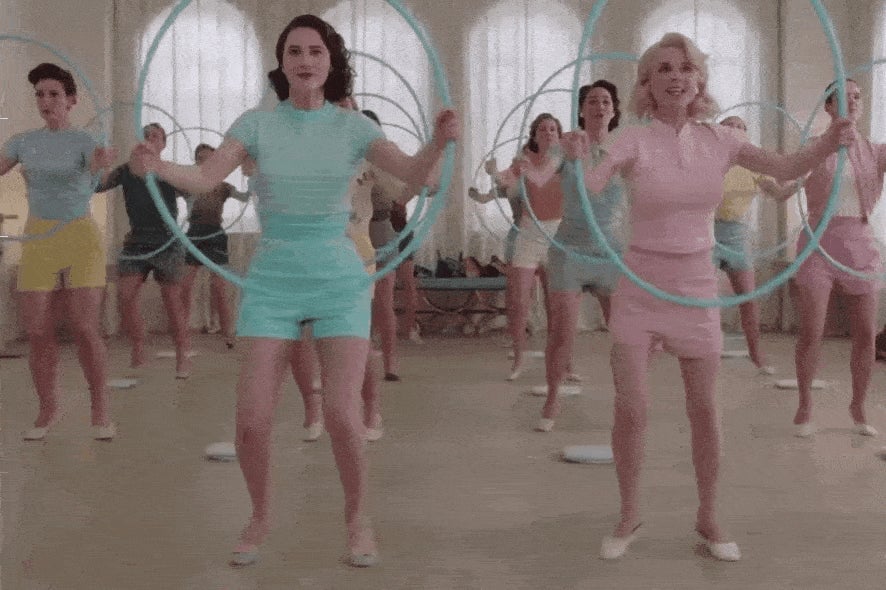Quartzy: the transformation edition
Happy Friday!

Happy Friday!
When I set out to report a Quartz field guide on the transformation economy—a burgeoning set of businesses where the “product” is a better you—I was keen on the idea of participating gonzo-style in a transformation of my own. I imagined screaming in a hotel ballroom, downing ayahuasca in Costa Rica, or soaking in a cliffside tub at the Esalen Institute. I didn’t expect that by the time I had such an experience, I might be somewhat desperate for it.
But the Sunday before I left to report at Antara, a healing retreat in Taos, New Mexico, I wrote in my journal: “I feel like the losses are piling up on me.” My friend and colleague Lauren Brown had passed away the previous week. A friend from high school died unexpectedly the month before. And in August, I had a miscarriage after 10 weeks of pregnancy.
Feeling deeply vulnerable and unsteady, I told my editor before I left: “This is either going to be really good, or really bad.”
(Today’s newsletter is a condensed version of a full story, which you can read here.)

The place, I suspected, would be good. Antara is run by Jan Birchfield, a leadership coach, spiritual healer, and psychology PhD, who works at the intersection of psychology and spirituality. When we spoke on the phone, she promised three days of meditation and healing work in a small group setting.
Less than a week later, I found myself in Taos among 15 people I’d never met. We sat in our socks at the edges of a denim blue rug on the second floor of a stone-colored adobe house, surrounded by open sky. Our circle was anchored by Birchfield, an intense listener who is youthful at 60 with bright blue eyes and the patient vibe of a cool mom on a ski trip.
During the retreat, we “opened” our circle with chanting accompanied by a harmonium—a reed organ that, when played on Birchfield’s lap, looked like a cross between an accordion and Schroeder’s piano from “Peanuts.” On the first morning I found a space by the window, in a warm, bright spot of clear high-altitude sunshine.

I closed my eyes and was immediately transported to another sunny spot, and felt a swelling in my chest. Five months earlier, on a late Sunday morning, I sat on the steps leading to a patio off the bedroom I share with my husband, Corey, in Los Angeles. Clutched in my hands was a pregnancy test I hardly needed: I was five days late, my boobs swollen and sore.
I had peed on the stick, waited five minutes, and then, still in my pajamas, taken it to the steps and sat down, heart pounding. I took a deep breath and relished the unknowing before turning over the test, which stated unequivocally: “Pregnant.”
I closed my eyes and tilted my face toward the summer sun. I took some very deep breaths, and experienced a profound sense of holy shit coupled with the knowledge that everything was fine. My heart was full and my head was light, even though I am not someone who has always wanted a baby, even though just a couple months earlier I’d said, sure we’ll give it a go, with something resembling ambivalence. In this brief moment, the sun dissolved all that.
This is where my head was when Birchfield pulled open the harmonium. A chord breathed to life, and I felt like air was being pushed into my chest. I closed my eyes, and she started a chant that was actually the chorus of Joe Cocker’s “Up Where We Belong.” Before I knew it, I was chanting along, eyes closed, tears streaming down my cheeks.

In my family, a “piece of work” is what we call someone who’s a pain in the ass. In Birchfield’s, it is a sort of customized healing exercise. Our days were made up of many, creating something like a quilt of human emotion stretched across our circle. Usually, a participant would briefly discuss a feeling or thought. Birchfield would ask a few questions, and invite the person to “drop in” to their body and “go toward” the feeling they’d described. About halfway through the retreat, she asked how I was doing, and I finally felt ready to answer.
I told the group about the miscarriage and said the moment I returned to again and again—the one playing on a loop as I sobbed in bed, and now in the circle—wasn’t a sad moment, but the sublime one: sitting on the steps in the sun with the pregnancy test, full of possibility. That moment was the loss I was mourning.
“She was never meant to stay,” Birchfield said, of the baby.
She said it was an ethereal being, a light that has always been with me—it was with me right now; she could see it in my field. She said the baby had been a messenger, and asked if I could tell what the message was.
I closed my eyes and tried to take deep breaths, to not think, and just be in my body for what seemed like a long time. I felt everyone in the circle, no longer strangers, holding me safely there. I didn’t know if I knew what the message was, but just said what finally came to me.
“She just wanted to be in that sunbeam,” I said, near-sobbing, though I didn’t know if the message was that she wanted to be there, or that she wanted me to be there. Or if she actually was the sunbeam. It didn’t really matter.
“Yes,” Birchfield replied. She said that my longing to be there too, perpetually in the sunbeam, was a spiritual one.
Birchfield defines spirituality as a connection deep within oneself, at a level she sees as connected with everything else, which she describes as “that which is beyond all knowing.” I have felt this connection in rare moments—usually in nature or on a road trip, once in awhile at a really, really good concert. Maybe a couple times on mushrooms, if I’m being honest. And yes, I would very much like to experience this connection—and my own faith in it—a little more often.
This ethereal being, Birchfield said, had briefly parted the curtains for me.
“I wish she could have just stayed,” I sobbed.

The day after the retreat ended, I sat across from Birchfield outside a café in Taos. She sipped a hot chocolate and said my situation wasn’t atypical.
“For so many people, their spiritual longing—because there’s so little context and language around that—gets placed at the feet of work, family, child, husband,” she said, “someplace in the world where we hope that whatever this longing is, is going to be met.”
This feels right to me. (Though I should clarify, in case my mother-in-law reads this, that we still want kids.) It also feels like a gift, like Luke Skywalker learning that the force is within him. He just has to practice accessing it.
For me, that means breathing deeply and meditating to quiet my mind, and returning to places and practices where I do feel that connection to keep the channels open. It means trusting my intuition. I still can’t hear it that clearly, but at least I know it’s there. “This deep inner knowing, will actually guide you directly into the unknown,” said Birchfield, “and pull you through the eye of the needle over and over and over again.”
I think there’s a tendency to only share these stories when we’ve reached a happy ending. But that’s not how transformation—or life—works. Instead, I found something arguably more powerful: a little peace in the process.
[quartzy-signature]


The extended version of this story, plus a handful of others, are part of our field guide on the transformation economy, which is available to Quartz members. If you don’t have a membership, and would like one, use the code TRANSFORMATION for 50% off. (Look who’s in the transformation economy now!) For perhaps more passive weekend entertainment, consider that The Marvelous Mrs. Maisel is back for her third season on Amazon.